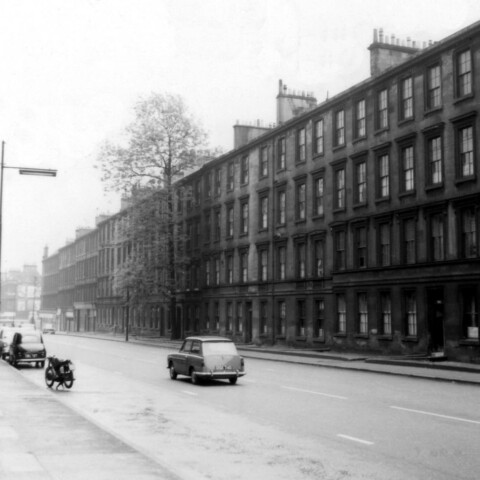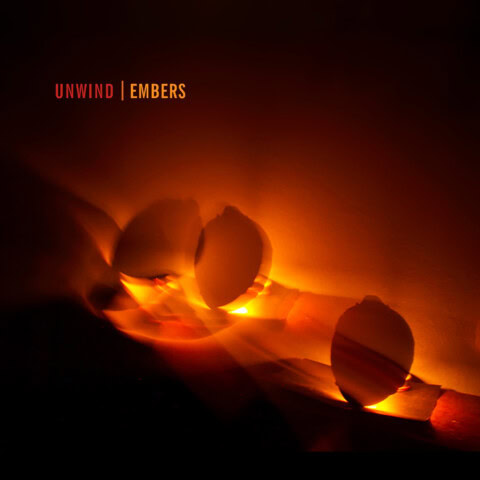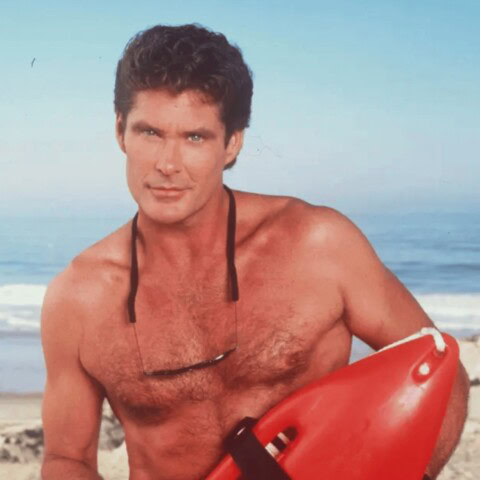An occasional column in which GARY STEEL reviews a bunch of recordings that escaped his attention at the time of release, and finds them to be of merit.
 A trippy, psychedelic album from New Zealand? A great, trippy, psychedelic album from New Zealand? A contemporary, great, trippy, psychedelic album from New Zealand?
A trippy, psychedelic album from New Zealand? A great, trippy, psychedelic album from New Zealand? A contemporary, great, trippy, psychedelic album from New Zealand?
Yep! The Nudge is a trio from Wellington, and Dark Arts (The Nudge) is their second album. I must have been in a mental fug the first time I heard this, because I found it underwhelming. A second play of the vinyl-only album some months later, and it came alive.
Comprising singer/guitarist Ryan Prebble (Fly My Pretties), keyboardist James Coyle and drummer Iraia Whakamoe, the atmospheric grooves on Dark Arts have some of the drifting space drama of post-Syd, pre-Dark Side Of The Moon Pink Floyd, while it also sounds like they’ve been listening to the kind of dreamy folk-prog that came out of France, and the mysterious Teutonic rhythms of groups like Can and Amon Duul.
They could have called it Lost Arts. While there are hundreds of groups plying versions of psychedelia on the international scene, few do so with as much sense of who they are as The Nudge, or manage to incorporate other elements with as much elan.
Dark Arts is a heady stew that in a mere three songs (two on the first side, one epic on the second side) is not only utterly convincing, and utterly intoxicating, but brings in a kind of Kiwi funk skew that must be a real crowd pleaser live. For brief periods of time I found these almost dance grooves a little intrusive, and I found myself yearning for a less meat-and-potatoes style of drumming, but those doubts edged away as I sank into the intoxicating and imaginative journey. Rating = 7.5/10
 Murray McNabb (1947-2013) was one of our best jazz keyboardists, and a composer/improviser without borders. One of the few to maintain a full-time career with the help of jingle work, his contribution to NZ jazz is incalculable, and includes the jazz-rock fusion of 1970s band Dr Tree, the shinier ‘80s jazz concoctions of Space Case, and more recent projects with Auckland group Salon Kingsadore. The Way In Is The Way Out – The Music Of Murray McNabb (Sarang Bang) is a double vinyl put together by label owner Gianmarco Liguori from McNabb’s private, mostly unreleased tapes, and it’s an odds and sods collection spanning 1977 through 2012.
Murray McNabb (1947-2013) was one of our best jazz keyboardists, and a composer/improviser without borders. One of the few to maintain a full-time career with the help of jingle work, his contribution to NZ jazz is incalculable, and includes the jazz-rock fusion of 1970s band Dr Tree, the shinier ‘80s jazz concoctions of Space Case, and more recent projects with Auckland group Salon Kingsadore. The Way In Is The Way Out – The Music Of Murray McNabb (Sarang Bang) is a double vinyl put together by label owner Gianmarco Liguori from McNabb’s private, mostly unreleased tapes, and it’s an odds and sods collection spanning 1977 through 2012.
While the compilation shows McNabb’s versatility – from solo piano improvisations to synthesiser wig-outs to acoustic jazz ensembles, only the serious student of NZ jazz will get a stiffy for these mostly fairly lo-fi recordings. It certainly gives a better picture of McNabb’s musical interests to add to his discography, and apart from a bunch of his own compositions there are renditions of pieces of Joe Zawinal, Don Cherry and even Frank Zappa, not to forget ‘Magenta’, written by Billy Kristian, who also plays bass on the track.
It’s certainly a handsome package, and includes quotes by the great man, as well as an interview. Rating = 6.5/10
 Listening to David Kilgour’s reissued debut solo album Sugar Mouth (Flying Nun) is to experience both the best and worst of the ‘Dunedin sound’. Given nice (if imperfectly pressed) vinyl treatment with sturdy gatefold cover, this 1994 album, erroneously tagged a “1994 reissue” on a cover sticker, forms a bridge between his earlier work in The Clean, that brilliant diversion into The Great Unwashed, and later work under his own name.
Listening to David Kilgour’s reissued debut solo album Sugar Mouth (Flying Nun) is to experience both the best and worst of the ‘Dunedin sound’. Given nice (if imperfectly pressed) vinyl treatment with sturdy gatefold cover, this 1994 album, erroneously tagged a “1994 reissue” on a cover sticker, forms a bridge between his earlier work in The Clean, that brilliant diversion into The Great Unwashed, and later work under his own name.
At his worst, Kilgour has a thin, nasally Dylan-into-Reed sneer to his voice that emphasises the artless strumming on songs like ‘No No No’ – a bad portent of an opener. He also reveals his folksy side, which on songs like ‘Fallaway’ and ‘1987’ which make for pleasantly droll if unadventurous listening.
The Great Unwashed at their best had a unique sonic architecture to their compositions that allowed them – no matter how desultory and half-assed their performances – to break out of strumland. There’s no Peter Gutteridge on board here, of course, but Kilgour does display a real aptitude for achingly pretty chord progressions (try ‘Beached’) and almost nonchalant killer fills and chord progressions throughout.
For me, Sugar Mouth is a real love/hate relationship, because there’s real beauty here, along with more than a hint of the kind of classic power pop Alex Chilton loved so much. But where Chilton’s affecting disarray on the third Big Star album was a sign of genuine emotional turmoil, too often Kilgour just sounds intentionally jaded, shambolic for attitude’s sake, and that still annoys the hell out of me.
I guess the blurred narcotic haze of so much of this would have sounded great on cheap-ass stereo systems in echo-laden student flats, but too often its sublime is wrecked by the sound of an out-of-tune strum coming from what sounds like an adjoining prefab.
Rating = 6.5/10















